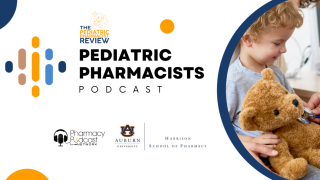Following 15-day Paxlovid Regimen, Long COVID Benefits Absent

Stanford Medicine researchers recently reported that an often-prescribed medication for treating COVID-19 did not produce measurable benefits for those suffering from Long COVID.
This disappointing news affects millions of people who are taking Pfizer Inc. Paxlovid™ to combat Long COVID.
A survey by the Agency for Healthcare Research and Quality recently concluded almost 18 million adults have ever had Long COVID.
And a recent JAMA Data Brief disclosed adults who had received a COVID-19 booster had lower rates of Long COVID than those who had only received the primary series vaccination and those who had never been vaccinated.
This Original Investigation, published by the journal JAMA Internal Medicine on June 7, 2024, concluded that this randomized phase 2 clinical trial demonstrated the overall safety of a 15-day course of Paxlovid in patients with postacute sequelae of SARS-CoV-2 infection (PASC) but did not find a significant benefit of this therapy for a subset of PASC symptoms among a mostly vaccinated cohort with prolonged PASC symptoms.
These Stanford researchers identified an important issue.... No validated clinical endpoints or biomarkers of PASC have been established for clinical trials to date. The symptoms selected for this study were based on mechanistic rationale and patient prevalence and severity.
According to the National Academies of Sciences, Engineering, and Medicine, there are about 200 Long COVID symptoms.
Results from the NIH-Pfizer sponsored STOP-PASC clinical trial found that a 15-day course of Paxlovid had a safety profile similar to the 5-day acute treatment course and was generally tolerated.
However, compared to placebo-ritonavir, it did not improve select PASC symptoms (fatigue, brain fog, body aches, cardiovascular symptoms, shortness of breath, and gastrointestinal symptoms) or other health outcomes.
That could be good news, as it indicates that Long COVID symptoms subside with time, as these researchers have stated.
On the other hand, there's the possibility of a placebo effect: The extra attention and concern from nurses, doctors, and other health-provider types, as well as the hope of relief from the drug, may nudge placebo recipients to sense subjective improvement — or even to experience objective improvement — in their condition.
These researchers stated that it is essential to underscore that this study alone does not rule out Paxlovid as a potential therapy for PASC. Multiple reasons would explain why this trial did not detect a benefit for the selected outcomes, and several key themes warrant further discussion to inform future trials in PASC.
Co-principal investigator Upinder Singh, MD, professor and chief of infectious disease and geographic medicine and microbiology and immunology, commented in a press release, "Some studies suggest that viral particles and molecular debris could be responsible for some Long COVID sufferers."
"We figured if that's the case, maybe treating them with Paxlovid could relieve some of these symptoms."
'Our study cohort had protracted PASC illness averaging more than 16 months, and antivirals may need to be administered earlier in the illness before downstream and possibly less reversible adverse effects occur."
"We hope to report on our analyses of these measurements in four to six months," Singh said.
Researchers from Kaiser Permanente North California and Pfizer contributed to this research.
A previous study published in the Journal of Medical Virology in January 2024 by a team of researchers from UC San Francisco also found that Paxlovid did not reduce the risk of developing Long COVID for vaccinated, non-hospitalized individuals during their first COVID-19 infection.
Our Trust Standards: Medical Advisory Committee
























